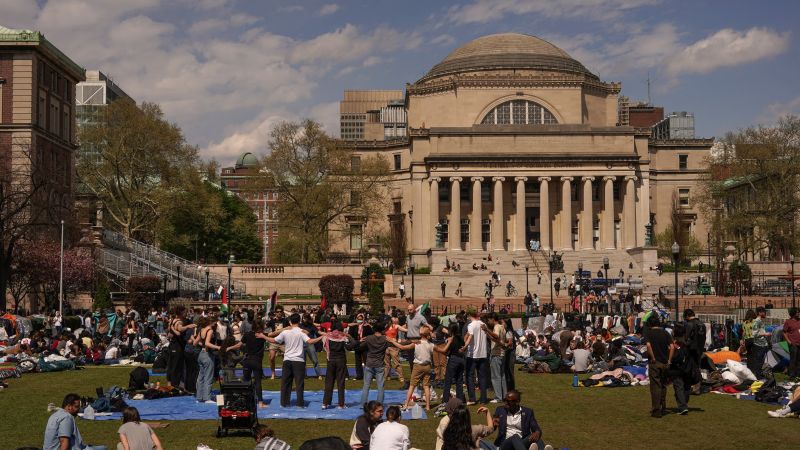Columbia University officials have decided to move all classes online on Monday as tensions on campus have escalated, particularly surrounding Passover. President Minouche Shafik made the decision in an effort to deescalate the situation and allow for a pause to consider next steps. The move comes after calls for Shafik’s resignation and concerns about the safety of Jewish students on campus. Pro-Palestinian demonstrations have been taking place for several days, prompting the university to take action.
The situation at Columbia has drawn attention from various political figures, including the White House, Governor Kathy Hochul, and Mayor Eric Adams, who have denounced violence against Jews. The New York Police Department has also stated they will arrest anyone breaking the law. The crisis at Columbia poses a significant challenge for Shafik, as she tries to navigate the difficult circumstances on campus. Representative Elise Stefanik has called for Shafik’s resignation, citing the need for new leadership at the university.
Following a congressional hearing on campus antisemitism, the pressure on Shafik has increased. The protests on campus have intensified, prompting concerns about safety and security for Jewish students as Passover begins. Jewish student organizations have increased security measures for their upcoming events, with police presence at the Kraft Center and additional security hired for Passover celebrations by Chabad. The university has emphasized that the safety of their community is a top priority and they are taking steps to address the concerns raised by Jewish students.
The decision to move classes online on Monday highlights the challenging environment at Columbia and the need to address the escalating tensions on campus. Shafik’s leadership is being put to the test as she faces calls for her resignation and concerns about the safety of students. The involvement of political figures and the increased security measures for Jewish students underscore the seriousness of the situation at the university. As Passover begins, the focus is on ensuring the safety and well-being of all members of the Columbia community.
The events at Columbia have drawn comparisons to similar situations at other Ivy League schools, where university leaders have come under pressure and resigned following controversies. The hearing on antisemitism before Congress and the subsequent escalation of protests on campus have put Columbia in the spotlight. The university is facing criticism for its handling of the situation and concerns about potential consequences for failing to restore order and safety promptly. As Passover unfolds, the focus remains on ensuring the security of Jewish students and addressing the underlying tensions at the university.
In conclusion, the decision to move classes online at Columbia University on Monday reflects the heightened tensions on campus surrounding Passover and the need to address the safety concerns of Jewish students. The involvement of political figures, calls for leadership change, and increased security measures for Jewish organizations underscore the gravity of the situation at the university. Shafik’s leadership is being put to the test as she navigates the challenges facing Columbia and works to deescalate the situation. As Passover begins, the focus is on ensuring the safety and well-being of all members of the Columbia community and addressing the underlying issues at hand.


